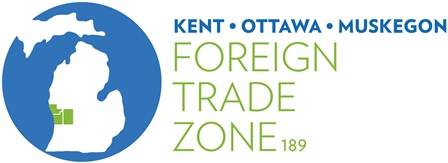Frequently Asked Questions
Why do multinational firms use foreign-trade zones?
To maintain the cost competitiveness of their US-based operations vis-à-vis their foreign-based competitors. Zones provide an opportunity to reduce certain operating costs associated with a U.S. location without operating from a foreign site.

How are they established?
The Foreign Trade Zones Act of 1934 created a Foreign Trade Zones Board to review and approve applications to establish, operate, and maintain foreign trade zones. The Foreign Trade Zone Board may approve a zone or subzone that it deems necessary to adequately serve "the convenience of commerce." In addition, the board also regulates the administration of foreign trade zones and the rates charged by zone "grantees."
U.S. Customs & Border Protection must approve activation of all zones before any merchandise is admitted under the Foreign Trade Zones Act.
What may be placed in zones?
Any foreign or domestic merchandise not prohibited by law, whether dutiable or not, may be admitted into a foreign trade zone.
Merchandise missing proper paperwork to be entered into the customs territory may be placed in a foreign trade zone because zones are considered outside the customs territory. For instance, merchandise may be stored in a foreign trade zone until a quota is removed or may be manufactured or manipulated inside a zone into a new product not subject to quota with the exception of certain textile products for specifics see (CFR. 146.63 (d)).
Federal agencies in the United States may regulate storage and handling of certain types of merchandise, such as explosives and food-related items. Depending on the nature of the requirement and the particular characteristics of the zone facility, such merchandise may be excluded. Moreover, agencies that license importers or issue importation permits may stop shipments into a zone that are not licensed or permitted.
The Foreign Trade Zone Board may exclude a zone from holding certain merchandise that in its judgment is detrimental to the public interest, health, or safety. The Board ensures that foreign trade zones are not used to circumvent other trade laws of the United States.
What may be done in a zone?
Foreign and domestic merchandise permitted in a zone may be stored, sold, exhibited, broken up, repacked, assembled, distributed, sorted, graded, cleaned, mixed with foreign or domestic merchandise, otherwise manipulated, destroyed, or be manufactured, without being subject to U.S. Customs laws. This exemption does not apply to machinery and equipment that is imported for use (for manufacturing or the like) within a zone.
In specific cases, the Foreign Trade Zones Board may deny permission to manipulate, manufacture, or exhibit merchandise in a zone in order to protect the public interest, health, or safety.
Many products subject to an internal revenue tax may not be manufactured in a zone. These products include alcoholic beverages, products containing alcoholic beverages except domestic denatured distilled spirits, perfumes containing alcohol, tobacco products, firearms, and sugar. In addition, the manufacture of clocks and watch movements is not permitted in a zone.
No retail trade in foreign merchandise may be conducted in a foreign trade zone. However, foreign and domestic merchandise may be stored, examined, sampled, and exhibited.
How is US Customs & Border Protection involved?
US Customs & Border Protection is responsible for the transfer of merchandise into and out of a zone and ensuring for the collection of revenue owed the agency. The Office of Regulations and Rulings at Customs Headquarters provides legal interpretations of the applicable statue, Customs Regulations, and procedures which must be met as part of the zone procedures.
The Port Director of Customs and Border Protection in whose district a zone is located is in charge of the zone as the local representative of the Foreign Trade Zones Board. The Port Director controls the admission of merchandise into the zone, handling and disposition of merchandise in the zone, and removal of merchandise from the zone. In addition to the Foreign Trade Zones Act, the Port Director enforces all laws normally enforced by US Customs and Border Protection relevant to foreign trade zones.
Zones are supervised by U.S. Customs officers through periodic checks and visits; the security of the zone must meet U.S. Customs and Border Protection requirements.
Is a Zone Right For Your Operations?
Consider the following:
- Car manufacturing plants, oil refineries, computer manufactures, and textile distributors are all utilizing Zones. Some zone users have as few as 15 employees.
- If you are already using another Customs tariff-reduction program, such as Duty Drawback, Temporary Importation Bond, or a Bonded Warehouse, you need to consider U.S. Zones as a way to streamline operations, cut down on paperwork, increase your flexibility, and save additional money, all at the same time. Many companies are discovering that Zones more efficiently meet their needs than other Customs programs.

